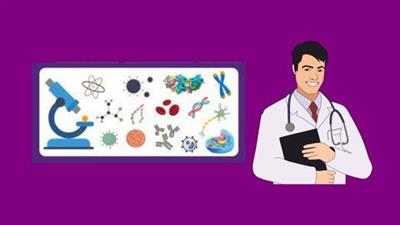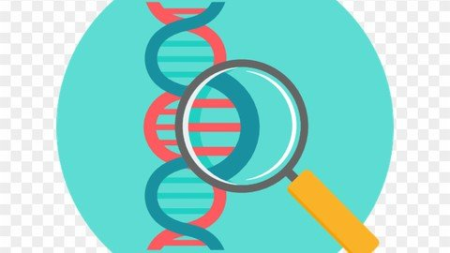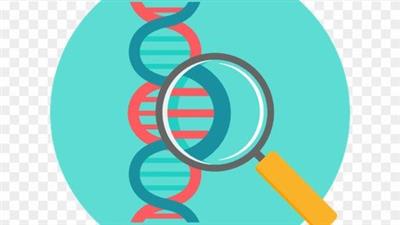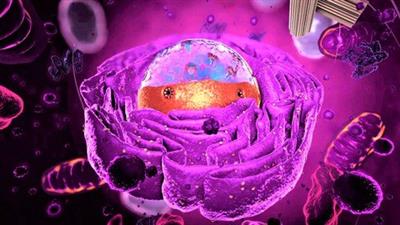
Biology End Of Course (Eoc) Review (Cells)
Posted on 24 Oct 06:09 | by oaxino | 0 views

Biology End Of Course (Eoc) Review (Cells)
Published 10/2023
MP4 | Video: h264, 1920x1080 | Audio: AAC, 44.1 KHz
Language: English | Size: 805.74 MB | Duration: 1h 10m
Cells, Cellular Biology, Proakryotes, Eukaryotes, Homeostasis, Cell Transport, Virus Structure, Organelles
Published 10/2023
MP4 | Video: h264, 1920x1080 | Audio: AAC, 44.1 KHz
Language: English | Size: 805.74 MB | Duration: 1h 10m
Cells, Cellular Biology, Proakryotes, Eukaryotes, Homeostasis, Cell Transport, Virus Structure, Organelles
What you'll learn
The student will demonstrate an understanding that cells are the basic unit of structure and function of living things.
compare and contrast prokaryotic and eukaryotic cells
investigate and explain cellular processes, including homeostasis and transport of molecules
compare the structures of viruses to cells, describe viral reproduction, and describe the role of viruses in causing diseases
Requirements
General Skills Needed: Well Organized, Self-motivated, Good Time Management Skills. Technical Skills Needed: Knowledge of computer terminology, understanding of basic computer hardware and software, internet skills, Ability to use online communication tools, such as email
Description
Are you curious about what powers all living organisms? Struggling to grasp basic concepts about cells and cell processes? Welcome to Cellular Biology: The Fundamental Unit of Life! In this course, you'll go on a journey to explore the remarkable world of cells, the building blocks of life itself. Discover the different types of cells, from prokaryotes to eukaryotes, and come to an understanding of how their structure is related to their function. You will gain an understanding of how cells carry out their functions. Discover how cells maintain homeostasis and adapt to their environment. You will go on to learn about how diverse cell types are while helping multicellular organisms to function. You will get to witness the complexity of cells through a virtual lab. Implications in the fields of medicine and biotechnology will be revealed to the student as well. Students will engage in activities that will help build there foundation of skills for future scientific endeavors. By the end of this course you will have a greater understanding of cells as the basic unit of structure and function in living organisms. The student will build a foundation and skills that will help them pursue more in depth studies in biology, the medical field, or where understanding the basic unit of life is essential. Come along with me as I take you through the world of cells!
Overview
Section 1: Introduction
Lecture 1 Introduction to Cells
Lecture 2 Why are cells so important?
Section 2: Cell Theory
Lecture 3 What is Cell Theory?
Lecture 4 Significance of Cell Theory
Lecture 5 Who's behind Cell Theory?
Section 3: Prokaryotic and Eukaryotic Cells
Lecture 6 What are the two types of cells?
Lecture 7 How do prokaryotic and eukaryotic cells compare?
Lecture 8 How do prokaryotic and eukaryotic cells contrast, or differ?
Section 4: Cell Structure and Function
Lecture 9 Size and Complexity of Cells
Lecture 10 Organelles
Lecture 11 Cell Division
Lecture 12 Classification of Cells
Section 5: Homeostasis
Lecture 13 What is homeostasis and why is it important?
Lecture 14 What do we mean by negative and positive feedback?
Section 6: Cell Transport
Lecture 15 Cell Transport
Lecture 16 Passive Transport
Lecture 17 Active Transport
Section 7: Viruses
Lecture 18 Introduction to Viruses
Lecture 19 Viral Reproduction
Lecture 20 What is the role of viruses in causing disease?
Section 8: Review
Lecture 21 Cell Structure and Function Review
The student knows that cells are the basic structures of all living things with specialized parts that perform specific functions and that viruses are different from cells.,This course is for those who are in need of solidifying their knowledge in the biology concept of cells. It will help you determine what you know and what you still may need work on. The purpose of the review process is to strengthen the concepts the learner may be weak in.
Screenshots
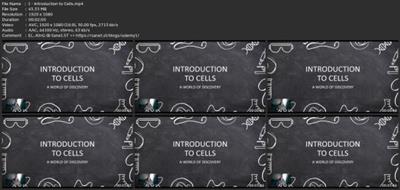
Download link
rapidgator.net:
uploadgig.com:
[b][/b]:
Related News
System Comment
Information
 Users of Visitor are not allowed to comment this publication.
Users of Visitor are not allowed to comment this publication.
Facebook Comment
Member Area
Top News
